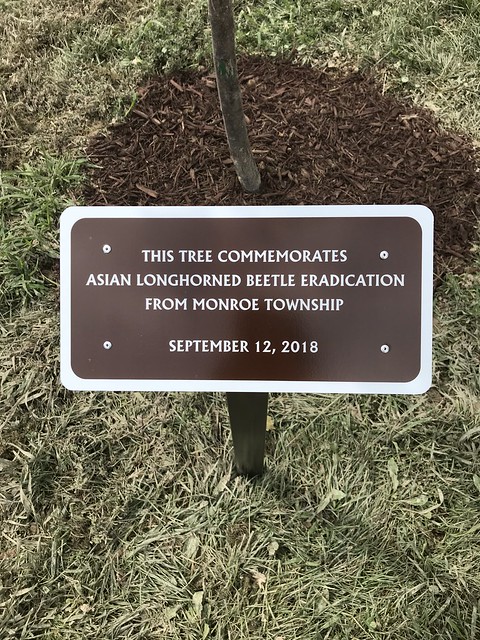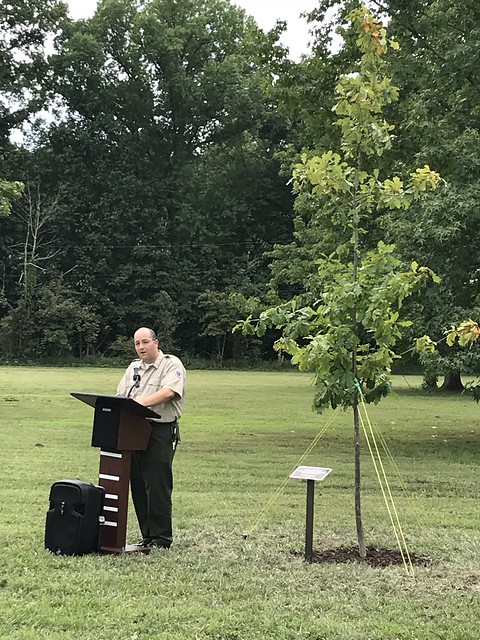
On September 12, USDA’s Animal and Plant Health Inspection Service (APHIS) and its partners declared Monroe Township in Clermont County, Ohio, free of Asian longhorned beetle (ALB). This news came just months after APHIS declared Stonelick Township free of the beetle in March.
ALB was first discovered in Monroe Township in August 2011. We think people unknowingly moved the beetle in firewood from Tate Township before anyone knew about the infestation there. Before long, adult beetles emerged and started infesting trees in Monroe.
To stop this pest in its tracks, APHIS and state officials had to remove 1,186 trees in Monroe. They protected 4,614 other trees by injecting a pesticide directly into the trunks. It took 7 years, but after inspecting over 177,000 trees, APHIS and its partners finally confirmed the beetle is no longer there.
An ALB infestation is a sad situation for everyone involved. The trees are essentially being eaten alive. Once a tree is infested, it can’t be saved. It has to be removed. However, there is a silver lining.
We are starting to see that silver lining in Worcester, Massachusetts, an area hard hit by ALB. As the Telegram & Gazette recently reported, “In place of an unhealthy monoculture of trees susceptible to invasive pests, the forests of Worcester and its surrounding towns in the quarantine area are now more diverse, more resilient and more appropriate for its urban setting.”
It takes time to eradicate this pest. It took 10 years in Illinois and 11 years in New Jersey. Eventually though, we get there. Today, the fight continues in parts of New York and Massachusetts. And, we have just one infested area left in Ohio.
Finding the pest early is critical to our success, and it’s the one factor that makes the biggest difference in terms of saving time, resources, and ultimately trees. So please check your trees for signs of ALB and report online or call 1-866-702-9938.

